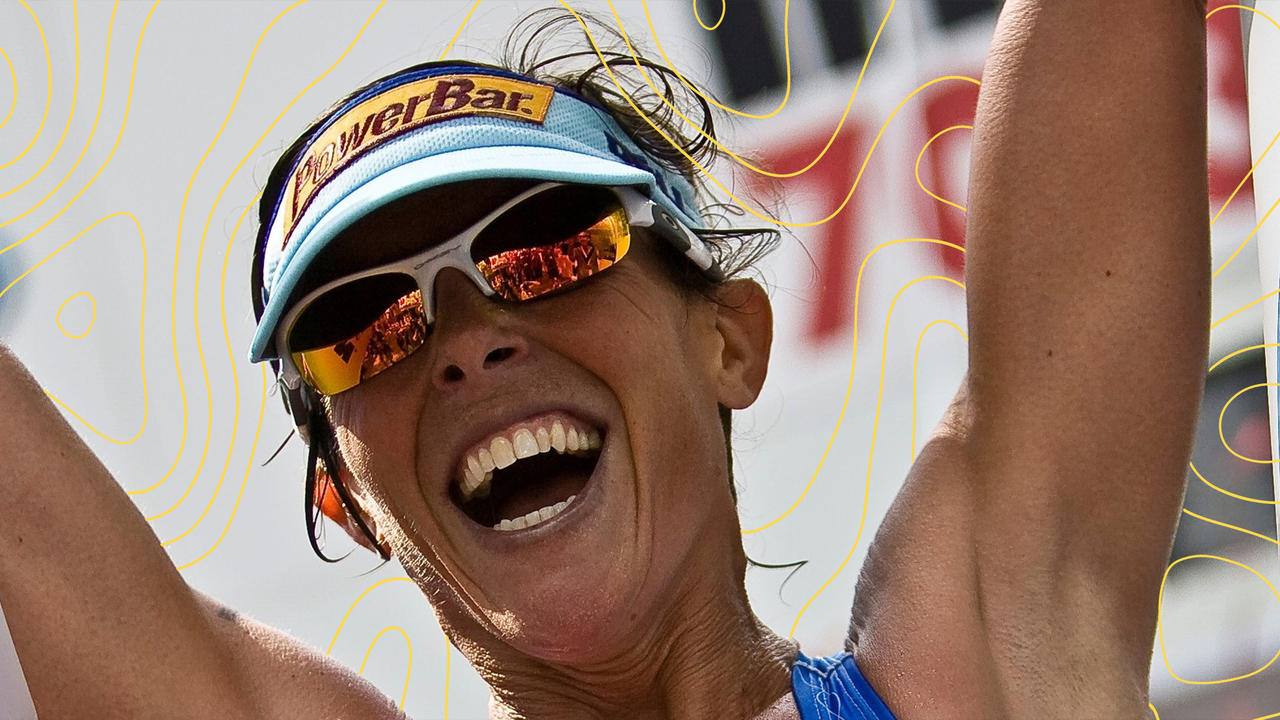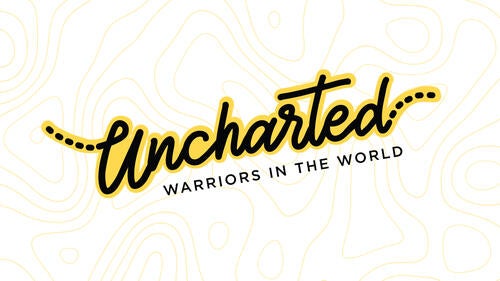
PODCAST: Going pro
Lisa Bentley (BMath '92) explains how she became a professional triathlete, and how a genetic lung disease gave her purpose

Lisa Bentley (BMath '92) explains how she became a professional triathlete, and how a genetic lung disease gave her purpose
By Megan Vander Woude Office of AdvancementListen to this episode or find it in your favourite podcast app
IRONMAN triathlons are about 4 times as long as their Olympic counterparts, and take hours to complete. To the average person — or average athlete, for that matter — the IRONMAN probably seems like an overwhelming challenge. But Lisa Bentley (BMath '92) built a whole career out of these epic races.
Lisa is an 11-time IRONMAN champion and has represented Canada on multiple national teams. She also has cystic fibrosis, an often-fatal genetic lung disease that she now considers a super power. After retiring from sport, she employed that superpower in a new way: as an author and motivational speaker.

Listen to this episode or find it in your favourite podcast app
(1:18) Lisa started running triathlons as a student
(3:42) From Olympic triathlons to the IRONMAN
(5:54) Going pro
(9:22) The daily routine of a pro triathlete
(11:50) Exercise as a retired athlete
(13:05) Lisa shares the different phases of her triathlete career
(14:00) Training for her first IRONMAN win
(15:59) The desire to have an impact
(18:48) Lisa's transition to motivational speaking
(20:24) What drives Lisa as a speaker?
(22:45) How did Lisa prepare to announce Olympic events?
(26:25) "I wasn't that talented as an athlete"
Cystic fibrosis is my superpower: Read Lisa's story in Waterloo Magazine
IRONMAN: Learn more about the race and community.
lisabentley.com: Learn more about Lisa's current roles as author, speaker, coach and more

Read more
Rahim Thawer (BA '08) shares the student experiences that led him to a career in social work

Read more
Alumni co-founders share why they said no to post-graduation job offers, and the work they do now in their software consultancy

Read more
Chris Wilson (BSc '21) walks us through his process from biochemistry student to cultural designer, including what he had to let go
The University of Waterloo acknowledges that much of our work takes place on the traditional territory of the Neutral, Anishinaabeg, and Haudenosaunee peoples. Our main campus is situated on the Haldimand Tract, the land granted to the Six Nations that includes six miles on each side of the Grand River. Our active work toward reconciliation takes place across our campuses through research, learning, teaching, and community building, and is co-ordinated within the Office of Indigenous Relations.